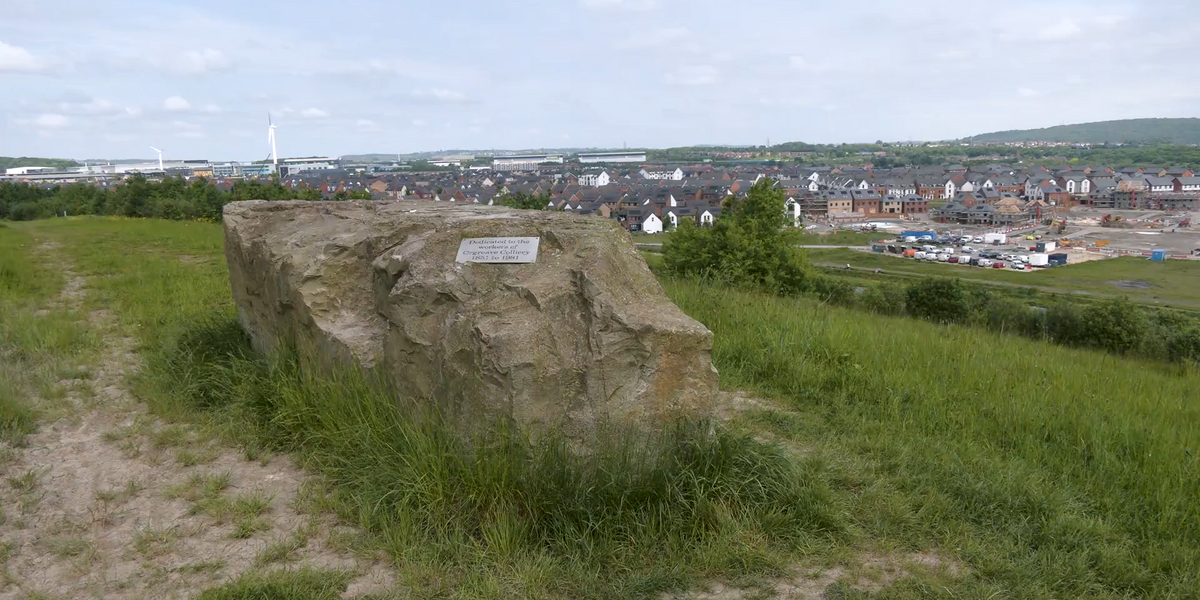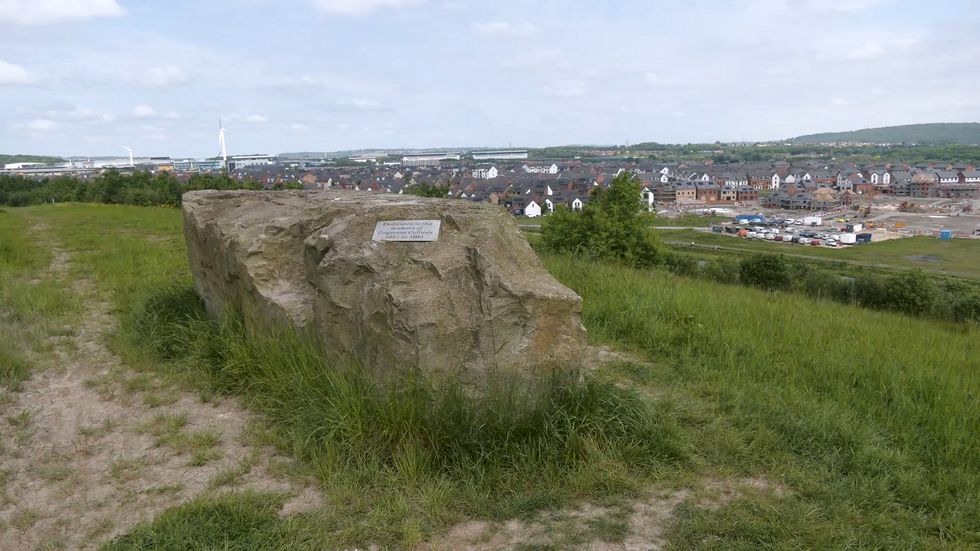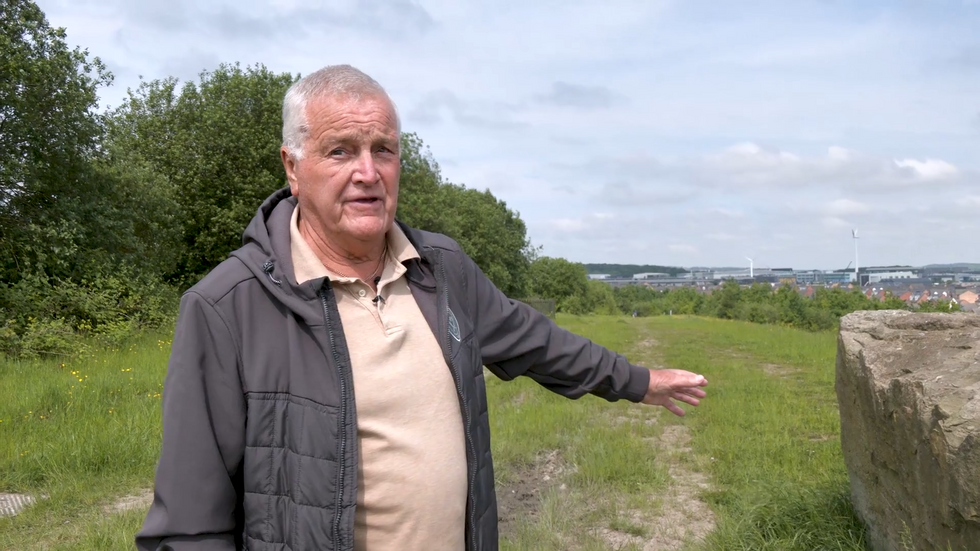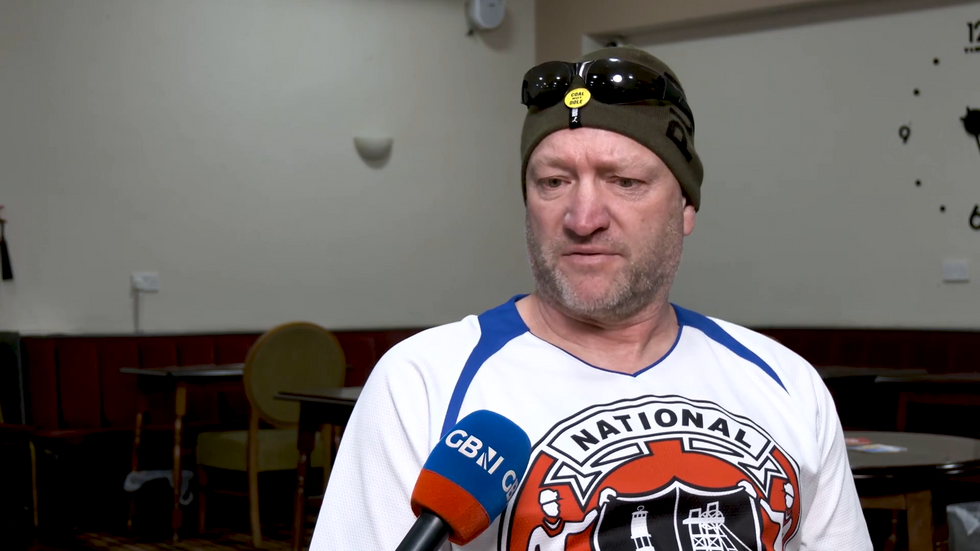



The Government has announced a national inquiry to be held more than 40 years on into the Battle of Orgreave, one of the most violent days of the year-long miners' strike.
The inquiry is set to look into the clashes between police and miners outside the Orgreave coking plant in Rotherham, South Yorkshire, on June 18, 1984.
Tensions came to a head after Arthur Scargill, then President of the National Union of Mineworkers (NUM), called for a mass picket at the former coking plant in Orgreave, which is now home to thousands living on a new build estate.
Miners from across Britain converged at Orgreave after Arthur Scargill, then President of the National Union of Mineworkers, called for a mass picket on the plant to try to disrupt deliveries, but they were met with force by thousands of police officers.
More than 100 people were injured after mounted police officers charged at the miners. Some 95 miners were arrested and charged with riot and unlawful assembly, but their trials collapsed amid claims of police misconduct and perjury by officers.
Home Secretary Yvette Cooper, who today announced the inquiry, said those affected by the confrontation had been left with "unanswered questions for over 40 years".
She said the inquiry had been put "in our Labour manifesto last year and that's what we're now delivering".
The inquiry will be chaired by the Bishop of Sheffield, the Rt Rev Dr Pete Wilcox, and would look at both the events of the day and the aftermath.
 GB News | Battle of Orgreave memorial
GB News | Battle of Orgreave memorial
Sarah Champion, MP for Rotherham, has welcomed the Government’s announcement.
The site of the former Orgreave Coking Works is in Sarah’s Rotherham constituency, and she has long campaigned for an inquiry.
In April, Sarah met with the Home Secretary, Yvette Cooper, alongside the Rt. Revd. Dr Pete Wilcox, Bishop of Sheffield, to urge the Government to fulfil their manifesto pledge without delay.
"I am delighted and relieved that, finally, 41 years on from Orgreave, the shocking events of that day are to receive the investigation they deserve," said Sarah Champion.
 GB News | Former South Yorkshire Miner David Turton
GB News | Former South Yorkshire Miner David Turton
"Former mineworkers, their families and campaigners from the Orgreave Truth and Justice Campaign have worked tirelessly for years to make this a reality.
"I have stood shoulder to shoulder with campaigners over the years as they were left to believe an inquiry would be commissioned, only to have the rug pulled out from under them.
"More than four decades on from Orgreave, some have questioned the need for such an inquiry. I would invite them to speak to my constituents in Rotherham for whom it remains an open wound.
"A lingering distrust continues to cast a shadow over relations between the South Yorkshire Police and the community it serves. This cannot be rebuilt until the full story is brought into the light.
"Above all, my constituents deserve to know the truth about their police force."
The Orgreave Truth and Justice Campaign (OTJC), which has been calling for an inquiry for 13 years, say that the announcement is "positive news".
OTJC Secretary, Kate Flannery, said: "We have waited a long time for this day, and this is really positive news. All these years of hard work by the OTJC and our many supporters have helped to influence this constructive announcement.
"We appreciate the Labour Party’s nine-year commitment to holding some kind of Orgreave inquiry.
"We now need to be satisfied that the inquiry is given the necessary powers to fully investigate all the aspects of the orchestrated policing at Orgreave, and have unrestricted access to all relevant information, including Government, police and media documents, photos and films."
Unite senior organiser Joe Rollin, who is a leading member of the Orgreave Truth and Justice Campaign, added: "This is an important step in the campaign for justice for all those affected by Orgreave and the campaign will continue to ensure that the Government and the inquiry deliver on everything that has been promised."
The events at Orgreave took place during the strike, which was sparked after the National Coal Board announced in March 1984 that it was shutting 20 UK collieries it said were unprofitable.
With 20,000 jobs at risk, more than three-quarters of the country's 187,000 miners went on strike in response to the announcement.
On the day of the Battle of Orgreave, striking miners wanted to stop lorries carrying coke to fuel the Scunthorpe steel furnaces as they thought disrupting production would help win their fight against the closures and job losses.
Still considered one of the most violent episodes in British industrial history, more than 100 people were injured, with 95 miners arrested and charged with riot and unlawful assembly.
Their trials collapsed amid claims of police misconduct and perjury by officers.
Now more than 40 years on, those involved still want answers about what happened and why.
Previously speaking to GB News on the 40th anniversary of the Battle of Orgreave, former South Yorkshire Miner David Turton told of how he is still haunted by that day.
"They all came over the bridge, which is down there, just like lambs to the slaughter, for the want of a phrase, and there were 6,000 police and 40 odd mounted police and police dogs, so they weren't playing, they meant business," he said.
"What happened was meant and planned and it was so sad. It was in Scargill's backyard and as you would expect, Scargill turned up and he got arrested.
"When Maggie [Thatcher] said 'they are trying to replace the rule of the law with the rule of the mob' nothing could have been further from the truth.
"Them 95 who went to court for riot, I don't think they had ever been into a police station before in their life and they were a 'mob', ridiculous."
 GB News | George Bingham, Former Yorkshire Miner
GB News | George Bingham, Former Yorkshire Miner
Former Yorkshire Miner George Bingham also previously reflected on the Battle of Orgreave.
He said: "I was there at Orgreave, I saw innocent people getting trampled on with horses, older than me, who couldn't run and get out of the way of things, people getting battered."I still get flashbacks of that now, Orgreave, it takes a lot to get over something like that. Just people out innocently picketing with T-shirts and getting absolutely hammered."
Pauline Tindall, South Yorkshire Miner's Widow, added: "My husband was there that day. They'd no weapons on them whatsoever, absolutely nothing, they'd just gone down there to protest about their jobs.
"They [police] had been expecting them, they were in force. It was meant to be violent that day, it was Thatcher's way of proving who she was."
Chris Turton, Former South Yorkshire Miner added: "You'd have thought people would have forgotten about it after 40 years, but not in these kinds of villages, you don't forget.
"Unite have been heavily involved in the campaign for a public inquiry and Union branches, regions and members have supported the Orgreave campaign financially as well as attending marches and demonstrations.
Unite general secretary, Sharon Graham said: "The events at Orgreave were absolutely horrific and the creation of the public inquiry is the first step in ensuring the full truth can finally be revealed.
"The role of Unite members, branches and regions in supporting the campaign for justice for Orgreave has been vital in securing the public inquiry.
"The public inquiry must ensure it gets the answers and uncovers the truth of who was behind the attack on striking miners at Orgreave."
In 2016, the Conservative government rejected calls for an inquiry, which the then Home Secretary Amber Rudd said would not be in the "public interest".
Dr Pete Wilcox, Bishop of Sheffield, is set to lead on the inquiry, which is expected to start later this year.
